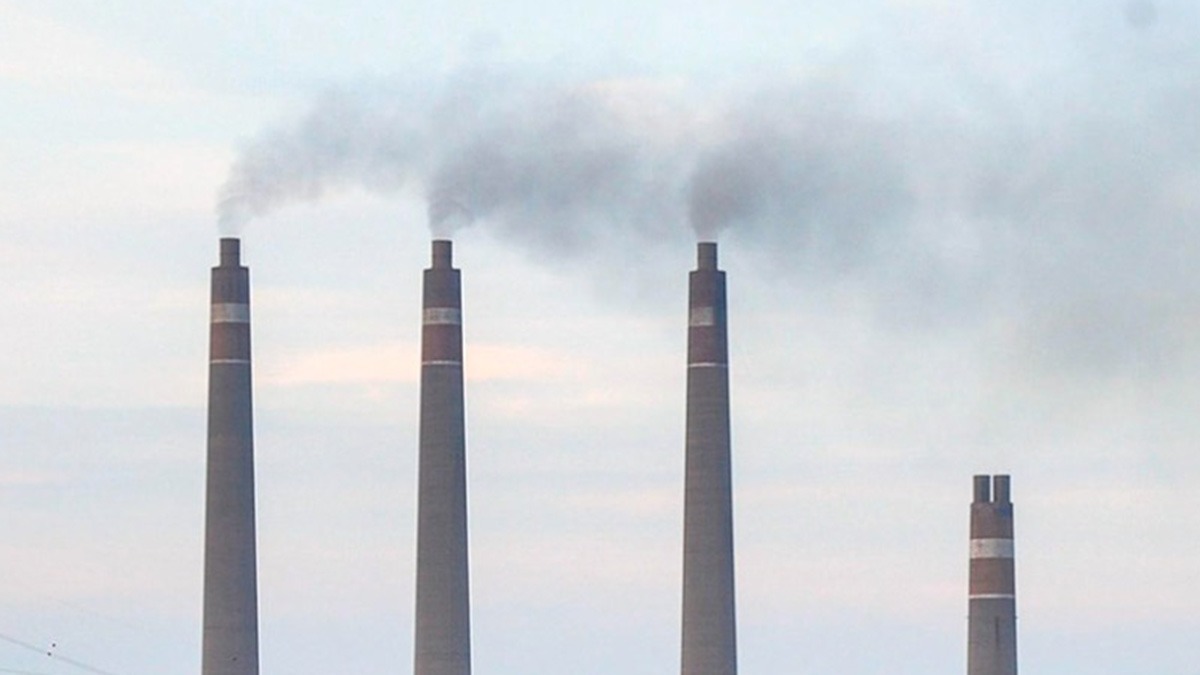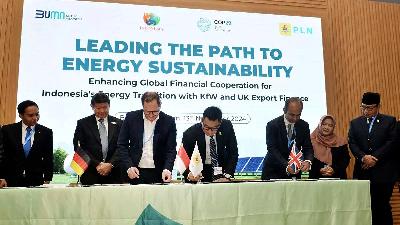The End of the Road for JETP
Monday, December 16, 2024
The JETP program failed to proceed in line with the plan because only a small amount of the assistance funds were disbursed. Indonesia actually increased the number of coal-fired power stations.
arsip tempo : 174643892732.

IT is time Indonesia abandoned the dream of obtaining significant funding from the Just Energy Transition Partnership (JETP). Two years after this idealistic-sounding program was first spoken of at the November 2022 G20 Summit in Bali, only a small amount of funding has actually been received.
When it first launched, this partnership went some way to answering the criticisms about the G20 summit, which was considered as the most extravagant in history and that cost more than Rp800 billion in State Budget funds. How could it not? Through the JETP, Indonesia was promised funding of US$20 billion, or around Rp310 trillion, to halt operations of coal-fired power plants (PLTU). The loans and donations would come from the International Partners Group (IPG), comprising 10 nations, including the United States, Japan and Canada, as well as the European Union. This funding was deemed as a significant achievement for President Joko Widodo.
However, because the funds are being paid out so slowly, it is not surprising that even Luhut Binsar Panjaitan, who was then the Coordinating Minister for Maritime Affairs and Investment, believes that the JETP is worthless. This is because of the amount promised, only around 5 percent has actually been paid. The JETP funding framework targets five energy transition programs, including the construction of renewable energy power plants. Indonesia already has a priority program to close down these PLTUs early.
The problem is that so far, not a single power plant has ceased operations. The plan to close the Palabuhanratu and Cirebon PLTUs in West Java, which are included in the JETP program, has grown to a halt because of problems related to the transfer of ownership. Moreover, the IPG nations have refused to fund the early close down scheme, saying that it would be no different from funding the coal business, despite the fact that funding of US$20 billion to US$30 billion is needed to close down PLTUs producing 5.2 gigawatts in Indonesia.
Conversely, Indonesia is seeing an increase in captive power generation, meaning power plants built and operated by private companies to meet their own electricity requirements. For example, there are a number used by the nickel smelting industry in Sulawesi. This shows that Indonesia is not serious about the JETP.
The construction of new power plants is increasing carbon emissions. As of the end of 2023, this nation was producing 704.4 million carbon dioxide equivalent tons, making Indonesia world’s sixth largest producer of emissions—but still less than China or the United States. If carbon emissions are not reduced, our grandchildren will feel the consequences. One of these could be an increase of 1.5 degrees Celsius over the next five years. The IPG reportedly is annoyed seeing the number of new PLTUs in various regions of Indonesia.
If Indonesia keeps its promise, will it receive the US$20 billion? It seems not. South Africa, for example, has received approximately US$733 million of the US$8.5 billion it was promised, or around 8.5 percent. The scheme is similar, with most of the funding in the form of commercial loans, while the donations are only around 5 percent.
The JETP, which used to be labeled innovative, is hardly any different from normal business calculations. Loans are only paid out for projects that will result in profits. Meanwhile, just forget about donations. The United States, which for the last four years has played the major role in energy transition, is to be led by President Donald Trump. He has referred to green energy as the biggest scam in history. Given the lack of activity at its secretariat in Jakarta, we can conclude that the JETP will go no further.











